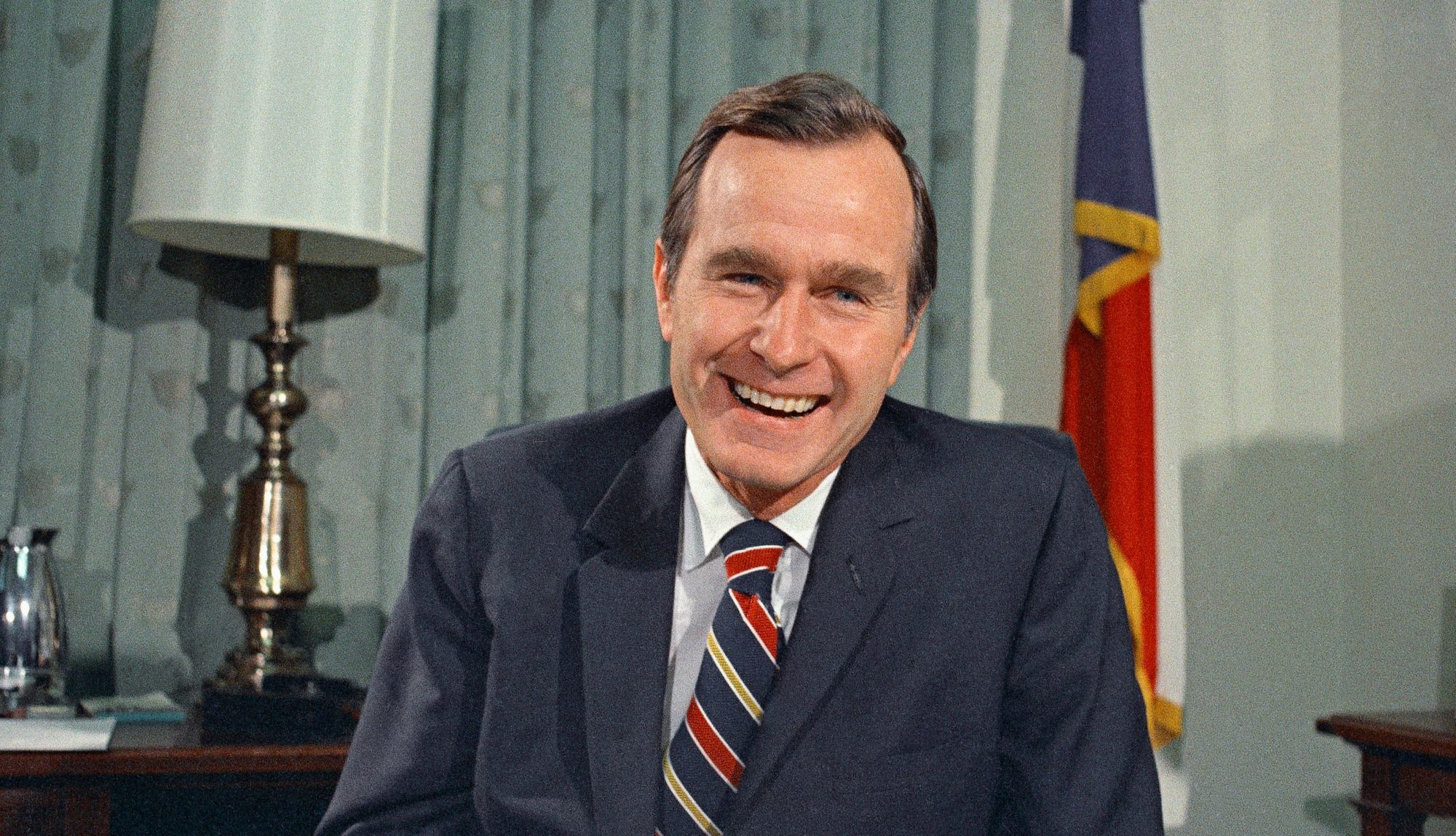As our country mourns Bush 41’s recent passing, we are reminded of his extraordinary legacy of service. A legacy filled with so many remarkable achievements and accolades, including an unprecedented strong foreign policy background that created a pathway of success for United States global leadership entering the post-Cold War period. His success helped transform the United States into the most powerful country in the world.
On the other hand, Bush 41’s presidency also included some foreign policy shortfalls. During his re-election bid, he was sharply criticized for allegedly organizing secret wars in Latin America, being too weak in responding to the crisis in Bosnia and failing to effectively communicate his priorities to the American people. Ultimately, though, Bush 41’s presidency was an invaluable period for US foreign policy.
During my time serving overseas, I remember learning how popular President Bush was in the Gulf Region. Over twenty years later, after the 1991 Operation Desert Storm, President Bush’s legacy remains powerful. On the day of Bush’s passing, I was not surprised to find out that the Kuwaiti Towers in the middle of Kuwait City were decorated with the colors of the American Flag, paying homage to President Bush.
Some would argue that the fight was primarily waged over energy supplies, but Bush is a hero in Kuwaiti history. The 1990 Iraqi invasion was a ruthless barbaric event that destroyed the entire country, killing thousands of Kuwaitis. During my time in service, I was deeply saddened to hear stories from the Kuwaiti community that was brutalized by Iraqi military aggression. Many were taken as prisoners of war and lost family, friends, and even their own property. To this day, there are Kuwaitis still missing from the invasion. Residents often shared with me how much they appreciated President Bush’s leadership. There was even a local rumor that the government of Kuwait gave President Bush the right to participate in its local elections in an effort to show appreciation. In addition, the US-led liberation of Kuwait reaped benefits for US foreign policy to this day. Our country gained a trusted partner in the region with strong economic, political, and military ties. Outside of Kuwait, Operation Desert Storm deepened key relationships in the Arabian Peninsula, reviving regional security. I am confident when I say that our policy in the Middle East would have been worse off were it not for President Bush’s smart and decisive decision to liberate Kuwait.
The Bush 41 presidency reminds us that foreign policy experiences matter in the executive branch. President Bush was one of the most successful foreign policy presidents and the last president elected with solid foreign policy experience. President Bush first entered the oval office with a wealth of experiences ranging from his time as a combat naval veteran, a US envoy to China, the head of the Central Intelligence Agency (CIA), and the chief diplomat representing the US at the United Nations.
A strong foreign policy background is essential for the US presidency. Unfortunately, this political norm is dying. Today, little to no foreign policy background is no longer frowned upon in a presidential candidate. But we must stop this unhealthy trend for many reasons. Traditionally, the executive branch is the driving vehicle in foreign policy. The legislative and judicial branch leans on the executive branch for guidance in this realm. Bush’s ability to understand the state of the global community helped him develop solid policies. More specifically, his wealth of experiences helped him to effectively deal with competitive foreign leaders, secure unprecedented bilateral and multilateral security and economic agreements, peacefully manage the collapse of the Berlin Wall, and build global coalitions in responding to global crisis.
The Bush 41 presidency also demonstrated how strong principled foreign policy survives in the long-run, regardless of political differences. President Bush was a moderate Republican, but still believed that it was necessary to defend the current state of world affairs. Bush saw the value in multilateral cooperation and supported international institutions like the United Nations. He was comfortable with providing resources to peacekeeping forces. He believed in global democratization. Bush strongly advocated for human rights and the rule of law abroad by supporting initiatives like ending apartheid in South Africa and providing humanitarian support in the former Yugoslavia. Bush also advocated for economic globalization and showed support for free trade agreements. Despite being defeated by President Clinton during his re-election bid, the Clinton administration continued on with these same principles. Clinton’s doctrine of enlargement included the continuation of Bush’s initiatives such as working with collective security organizations like NATO and the UN, supporting NAFTA and the creation of the World Trade Organization (WTO), advocating for nuclear nonproliferation initiatives like the Comprehensive Test Ban Treaty (CTBT), and committing to providing humanitarian efforts by sending troops and humanitarian support in Somalia. Even the Obama administration believed that Bush 41 deserved more credit in foreign policy and continued some of Bush 41’s principles.
Today, as a University Professor, I teach US foreign policy. Teaching President Bush’s foreign policy record to a generation that can barely remember 9/11 is a sigh of relief. This is the same generation that lives is in a state of confusion, trying to figure out if global populism is the right direction for the United States and the rest of the international community. Referring to the Bush 41’s presidency helps to show that the liberal world order works and indirectly discredits populism. Our country and the rest of the world is better off when we defend this state of affairs. Currently, though, we are witnessing the American people, specifically, the extreme right of the Republican Party, conforming to populist policies like rejecting free trade, bullying international institutions, dismissing environmental issues, and missing the opportunity to defend human rights at home and abroad. These policies may feel good now, but over the long term, will contribute to global instability.
The remembrance of the Bush Doctrine is a tribute filled with many lessons that we must embrace in American foreign policy. President Bush stayed true to his principles by demonstrating his commitment to thoughtful enduring policies. Today, the future of American global leadership may be at stake, but we are reminded that we can always look up to Bush 41’s presidency as a model for the future.
Asha Castleberry is an adjunct faculty professor at Fordham University and a US Army veteran. Asha completed a 30-month deployment in the Middle East.





















